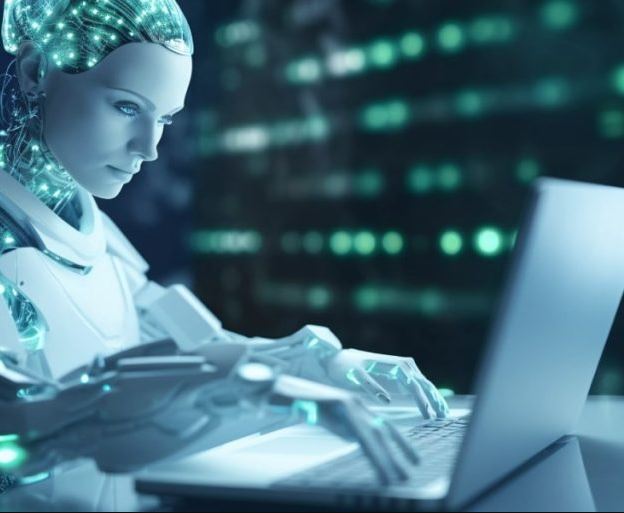The work landscape is rapidly evolving as AI and automation transform industries, redefine work roles, and demand new skill sets. While these advances increase efficiency and create new opportunities, they also challenge workers and organizations to adapt to a world where machines and humans collaborate more than ever before. Here, we explore how AI and automation are changing the future of work and highlight the skills that are essential for success in this new era.
The Rise of AI and Automation in the Workplace
AI and automation have gained momentum in recent years, increasing productivity by handling tasks that once required human labor. With machine learning, robotic process automation (RPA), and AI-powered analytics, businesses streamline operations, reduce costs, and make faster data-driven decisions. AI capabilities go beyond basic tasks; now support roles that require decision-making and complex problem-solving, such as diagnosing diseases in healthcare or analyzing large financial data sets.
This widespread adoption of AI technology is reshaping the way companies operate, with sectors such as customer service, manufacturing, and data analytics leading the way. For example, AI chatbots manage customer interactions, and robotic automation improves manufacturing efficiency, shifting the role of humans to tasks that require emotional intelligence and creativity.
Redefining Job Roles and Future Skills
As automation takes over repetitive tasks, job roles continue to evolve, and so do the skills workers need. In the “future of work,” employees will increasingly interact with AI systems, requiring a combination of technical expertise and interpersonal skills. Here are some important skills:
- Technical Skills: AI and automation create demand for expertise in data analysis, programming, machine learning, and cloud computing. These skills are essential for IT roles, data science, and AI development.
- Digital Literacy: Knowing how to use digital tools like collaboration software and analytics platforms is important as more and more workplaces adopt digital solutions.
- Creativity: As routine tasks become automated, human creativity will be needed to innovate and solve problems. Industries like advertising and product design will depend heavily on creative thinking.
- Social Skills and Emotional Intelligence: Roles in healthcare, education, and management will prioritize skills like empathy and teamwork, which cannot be replicated by machines.
- Critical Thinking and Problem Solving: Analytical thinking and strategic decision-making will remain useful in fields like business management, engineering, and consulting.
Project Creation and Transformation
One major concern about AI and automation is its potential to eliminate jobs. However, while certain routine roles may decline, AI and automation are expected to create new jobs and industries. For example, new roles like AI ethics specialists, data analysts, automation supervisors, and AI trainers are emerging to guide and improve AI technology.
In addition, AI has introduced innovative tools that enable productivity and creativity. One such tool is an AI avatar generator, which allows businesses and individuals to create realistic digital personas for marketing, virtual customer service, and content creation. This technology is leading to a new role in digital branding and virtual experience design, which requires creativity and an understanding of AI and brand aesthetics.
Also Read: A Short Guide to Improving Content Creation Through AI-Powered Personal Avatars
Embracing Human-AI Collaboration
Organizations are increasingly adopting hybrid models where AI works alongside humans, combining both strengths. Humans bring intuition and adaptability, while AI offers speed, accuracy, and processing power. In the legal and digital marketing sectors, AI can handle data analysis while humans focus on interpretation, strategy, and client interaction.
For example, AI is rapidly searching through large amounts of legal documents in the legal industry, saving lawyers time to focus on case strategy and client communications. In addition, AI-driven insights help marketers design emotionally engaging campaigns for target audiences, combining data with creativity.
The Importance of Continuous Learning
As AI and automation continue to evolve, continuous learning becomes essential. Relevant skills may not be in use today, so workers must prioritize continuing education to stay competitive. Organizations play an important role by providing training programs and access to new technologies. Governments and educational institutions are also getting involved, offering courses in AI, robotics, and data science to equip the workforce for the future.
Ethical Considerations and the Human Element
AI and automation present exciting opportunities, but they also raise ethical issues. Issues like data privacy, algorithmic bias, and the risk of large-scale job displacement require careful scrutiny. Companies developing AI must ensure that the technology is ethical, transparent, and humane.
Also, as the workplace becomes more automated, there is a risk of losing the human touch. AI lacks the empathy and emotional sensitivity that are essential in professions like health care and education. Maintaining a balance between AI capabilities and human needs will foster trust and maintain a human-centered workplace.
A Technology-Enhanced Future Workforce
The future of work promises a world where humans and machines work together seamlessly. As technology advances, workers will shift from routine tasks to roles that emphasize creativity, critical thinking, and interpersonal skills. While AI and automation will change some jobs, they will also open the door to new career paths in fields like AI development, cybersecurity, and virtual experience design.
Tools like AI avatar generators illustrate how technology can enhance human capabilities while creating new job opportunities. From digital branding to virtual customer service, AI is pushing the boundaries of what is possible in business and creativity.
Conclusion
The future of work will not only replace humans but increase their potential through technology. AI and automation will continue to transform the workplace, requiring individuals and organizations to adapt, learn, and grow. Workers can thrive in this new era by embracing continuous learning, developing essential skills, and adopting a collaborative approach to technology.
The journey forward is finding a balance between human ability and machine efficiency. Together, humans and AI can build a future of innovation, productivity, and meaningful human-machine collaboration.



